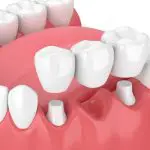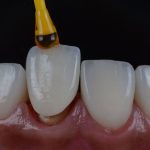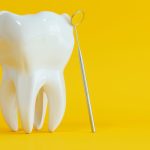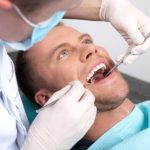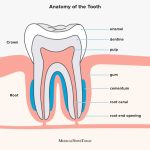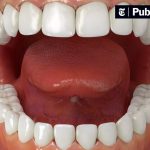Why Do My Bottom Teeth Hurt When I Wake Up? Understanding the Causes and Remedies

Waking up with tooth pain is never a pleasant experience. However, when the pain is localized to the bottom teeth, it can be particularly concerning. There are a variety of potential causes for this discomfort, ranging from bruxism to gum disease. Understanding these causes and the remedies available can help alleviate the pain and prevent further dental issues. One potential cause of bottom tooth pain is bruxism, the grinding or clenching of teeth during sleep. This can put significant pressure on the teeth and cause pain, particularly in the bottom teeth. Another potential cause is gum disease, which can cause inflammation and sensitivity in the gums and teeth. Poor oral hygiene habits, such as infrequent brushing and flossing, can also contribute to gum disease and tooth pain. Additionally, dental issues such as cavities or a cracked tooth can cause localized pain in the bottom teeth. By identifying the root cause of the pain and seeking appropriate treatment, individuals can prevent further damage to their teeth and alleviate the pain associated with waking up with sore bottom teeth.
Waking up with sore teeth can be a frustrating and painful experience. While the problem is often associated with the top teeth, many people also experience discomfort in their bottom teeth. There are several potential causes of this type of pain, including bruxism (teeth grinding), gum disease, tooth decay, and misaligned teeth. Understanding the underlying cause of your sore, bottom teeth is key to finding an effective remedy. Depending on the cause, treatment may involve lifestyle changes, such as reducing stress or improving oral hygiene, or more extensive interventions, such as dental work or orthodontic treatment.
Understanding the causes and remedies of bottom teeth pain is essential to maintain proper oral health. Pain in the lower teeth can be caused by a variety of factors, including tooth decay, gum disease, grinding teeth, and misaligned teeth. Ignoring this pain can lead to severe dental problems, such as infections, abscesses, and tooth loss. Therefore, it is crucial to identify the underlying cause of the pain and seek appropriate treatment as soon as possible. Remedies for bottom teeth pain include brushing and flossing regularly, using a mouthguard for teeth grinding, and visiting a dentist for professional cleaning and treatment. By understanding the causes and remedies of bottom teeth pain, individuals can maintain good oral health and prevent serious dental issues.
Bruxism
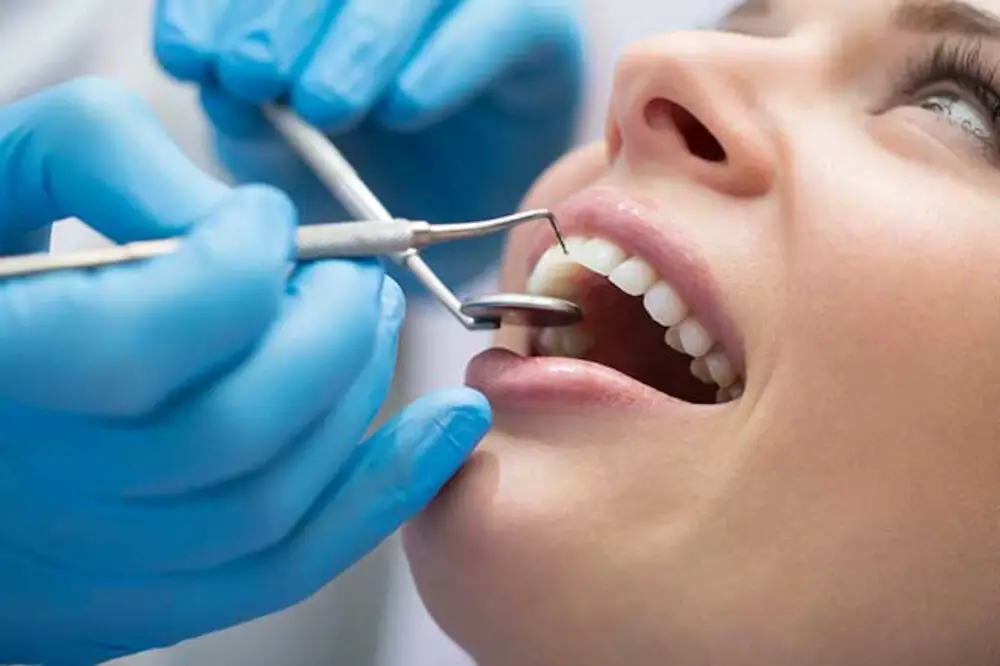
Bruxism is a condition in which an individual grinds, clenches, or gnashes their teeth unconsciously during the day or at night, while sleeping. It is a common problem that affects many people, and if left untreated, it can lead to various dental and oral health issues. Bruxism can be caused by various factors, including stress, anxiety, misaligned teeth, and sleep disorders. If you suffer from bruxism, you may experience symptoms such as jaw pain, headaches, earaches, and sensitive teeth. Dentists often recommend wearing a mouthguard or splint to protect your teeth and jaw from damage caused by bruxism. Additionally, practicing stress-reducing techniques such as meditation, exercise, and relaxation can help alleviate the symptoms of bruxism. If you wake up in the morning with sore or sensitive teeth, it is important to speak to your dentist about bruxism. Your dentist can help identify the underlying cause of your bruxism and recommend the appropriate treatment. If left untreated, bruxism can lead to cracked or chipped teeth, receding gums, and even tooth loss. Therefore, it is crucial to seek treatment as soon as possible to prevent further damage to your teeth and oral health. With the right treatment and lifestyle changes, you can manage your bruxism and wake up pain-free.
Bruxism is a medical condition characterized by the grinding, gnashing, or clenching of teeth, which usually happens unconsciously during sleep or when awake. The causes of bruxism are still not entirely clear, but it is often linked to stress, anxiety, and sleep disorders. This condition can lead to a range of dental problems such as tooth sensitivity, cracked or chipped teeth, jaw pain or stiffness, headaches, and earaches. If left untreated, bruxism can cause severe damage to teeth and gums and may require extensive dental work. Treatment options include stress management techniques, relaxation exercises, mouthguards, and medication.
Bruxism, commonly known as teeth grinding, can cause bottom teeth pain due to the excessive pressure and friction exerted on the teeth. This condition often occurs during sleep and can result in the wearing down of tooth enamel, leading to tooth sensitivity and pain. Bruxism can also cause the lower teeth to become misaligned, resulting in discomfort and pain. Additionally, the constant grinding of teeth can cause inflammation and irritation of the surrounding gums and tissues, leading to further pain and discomfort. Proper diagnosis and treatment of bruxism can help alleviate bottom teeth pain and prevent further damage to the teeth and surrounding tissues.
Bruxism is a condition characterized by excessive teeth grinding or clenching. It can occur while awake or asleep and can lead to a range of symptoms, including headaches, jaw pain, and tooth sensitivity. Many people with bruxism may not even be aware that they are grinding their teeth, as it often occurs during sleep. However, some common signs to look out for include worn-down teeth, chipped or cracked teeth, and a clicking or popping sound when opening and closing the jaw. If left untreated, bruxism can cause long-term damage to the teeth and jaw, so it is important to seek treatment if you suspect you may have this condition.
Bruxism, also known as teeth grinding, can cause bottom teeth pain. Fortunately, there are several remedies available to alleviate the discomfort. One of the most effective remedies is wearing a mouthguard at night to prevent grinding and clenching of teeth. Additionally, practicing stress management techniques such as meditation or yoga can help reduce bruxism. It is also important to avoid consuming caffeine and alcohol, which can increase teeth grinding. In severe cases, a dentist may recommend treatments such as orthodontics or dental restorations to correct bite issues that contribute to bruxism. Overall, addressing the root cause of bruxism and seeking professional treatment can alleviate bottom teeth pain and prevent further damage to the teeth.
Gum Disease
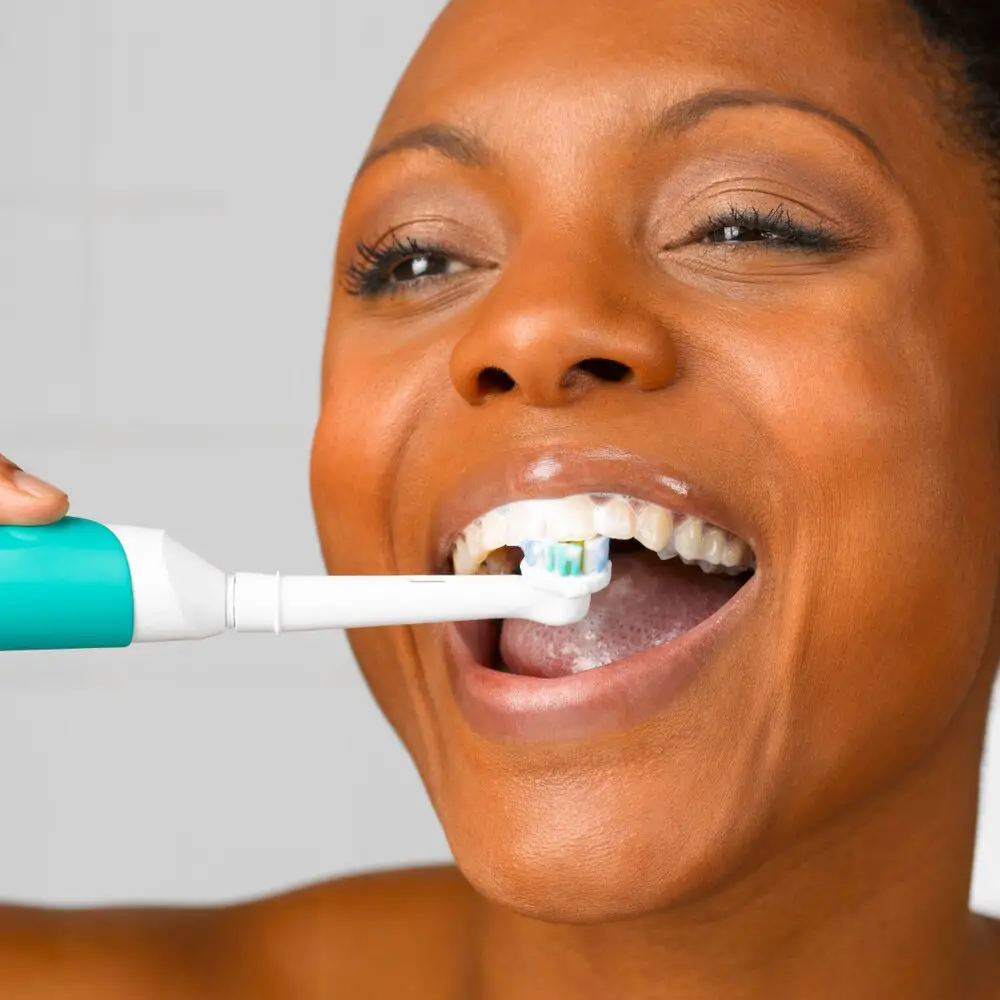
Gum disease, also known as periodontitis, is a common cause of tooth pain and discomfort. This condition occurs when the gums become inflamed due to the accumulation of bacteria and plaque on the teeth. As the disease progresses, the gums can start to pull away from the teeth, creating pockets where more bacteria can accumulate. This can lead to tooth decay, infection, and even tooth loss if left untreated. Common symptoms of gum disease include swollen, red, or bleeding gums, bad breath, and loose teeth. To prevent gum disease, it’s important to maintain good oral hygiene habits. This includes brushing your teeth twice a day, flossing regularly, and visiting the dentist for regular cleanings. If you suspect that you may have gum disease, it’s important to seek treatment as soon as possible. Your dentist may recommend a deep cleaning to remove plaque and bacteria from your teeth and gums, or in more severe cases, surgery may be necessary to repair the damage. By taking care of your teeth and gums, you can prevent gum disease and keep your smile healthy and pain-free.
Gum disease, also known as periodontal disease, is a common dental condition that affects the gums and bone supporting the teeth. It is caused by a buildup of plaque on the teeth and gum line, which can lead to inflammation and infection. Symptoms of gum disease may include red, swollen, or bleeding gums, bad breath, and loose or shifting teeth. If left untreated, gum disease can progress to more severe stages, causing irreversible damage to the teeth and gums. Prevention and early detection are key to managing gum disease, and regular dental check-ups and good oral hygiene habits can help prevent its development.
Gum disease, also known as periodontitis, is a common cause of bottom teeth pain. This condition occurs when bacteria build up in the gums, causing inflammation and damage to the tissues supporting the teeth. As the disease progresses, the gums can pull away from the teeth, exposing the roots and causing sensitivity and discomfort. In severe cases, gum disease can lead to tooth loss. To prevent gum disease, it is important to practice good oral hygiene, including brushing twice a day, flossing daily, and visiting the dentist regularly for cleanings and checkups. If you are experiencing bottom teeth pain, it is important to see a dentist to determine the underlying cause and receive appropriate treatment.
Gum disease, also known as periodontal disease, is a common cause of tooth pain. The symptoms of gum disease include red, swollen, or bleeding gums, bad breath, and receding gums. As the disease progresses, pockets may form between the teeth and gums, allowing bacteria to accumulate and destroy the tissues that support the teeth. This can eventually lead to tooth loss if left untreated. If you are experiencing any of these symptoms, it is important to see a dentist for an evaluation and treatment.
Gum disease can be a significant cause of bottom teeth pain, and the first step to remedy it is to improve oral hygiene practices. Brushing and flossing regularly can help reduce inflammation and bacteria buildup in the gums. Additionally, using an antibacterial mouthwash can help kill harmful bacteria that brushing and flossing might miss. If the pain persists, a visit to the dentist is necessary for a thorough cleaning and possible antibiotics or anti-inflammatory medication to treat the gum disease. In severe cases, surgical intervention might be required to treat the gum disease and alleviate bottom teeth pain.
Dental Issues
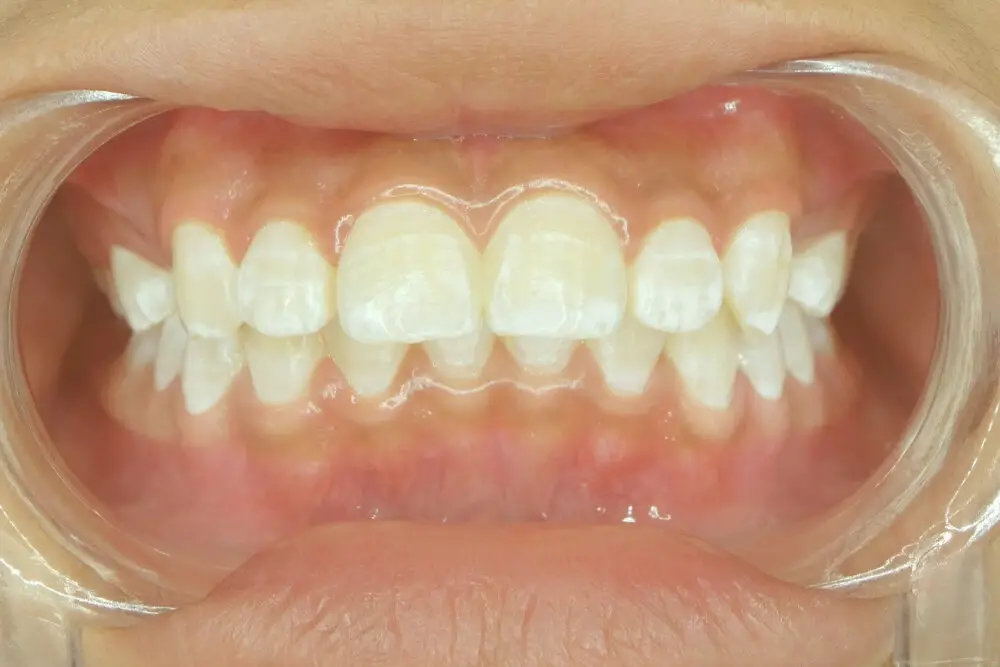
Dental issues can be a source of discomfort and pain for many people, and they can impact daily life significantly. One common problem that people experience is waking up with sore or hurting bottom teeth. This can be caused by a variety of factors, including grinding or clenching of the teeth, jaw misalignment, or even tooth decay. Grinding or clenching can cause stress on the teeth, leading to discomfort or pain upon waking. Additionally, jaw misalignment can cause pressure on specific teeth, leading to pain and soreness. Tooth decay, or cavities, can also be a source of discomfort and pain, particularly if left untreated. Fortunately, there are remedies available for those who experience pain or soreness in their bottom teeth upon waking. A dental professional can help identify the underlying cause of the discomfort and provide treatment options. This may include the use of a nightguard to prevent grinding or clenching, orthodontic treatment to correct jaw misalignment, or fillings or other dental procedures to address tooth decay. Additionally, maintaining good oral hygiene habits, such as brushing and flossing regularly, can help prevent dental issues and reduce the likelihood of experiencing pain or discomfort.
Dental issues can cause bottom teeth pain, such as cavities and abscesses. Cavities are holes in the teeth caused by bacteria that erode the tooth’s enamel and dentin. They can cause sensitivity and pain when eating or drinking hot or cold foods. Abscesses, on the other hand, are infections that occur at the root of a tooth or between the gum and tooth. They can cause severe, throbbing pain, swelling, and even fever. Both cavities and abscesses require prompt attention from a dentist to prevent further damage and alleviate discomfort. Proper oral hygiene, such as brushing and flossing regularly, can help prevent these dental issues from occurring.
Dental issues can be a common cause of bottom teeth pain. One of the most common dental issues that can lead to pain in the lower teeth is tooth decay or cavities. When cavities are left untreated, they can spread to the roots of the teeth, causing inflammation and pain. Gum disease is another dental issue that can cause bottom teeth pain. When bacteria build up in the gums, it can lead to inflammation, swelling, and pain. Additionally, teeth grinding or clenching can also cause discomfort in the lower teeth. This condition, known as bruxism, can wear down the teeth and cause them to become sensitive or painful. Therefore, it is essential to visit a dentist regularly and maintain good oral hygiene to avoid dental issues that can cause bottom teeth pain.
Dental issues can manifest in a variety of symptoms, including toothache, sensitivity, bleeding gums, bad breath, and swelling of the jaw or face. Toothache is a common symptom of dental problems, which can range from a dull ache to a sharp, shooting pain. Tooth sensitivity to hot or cold temperatures or sweet foods can also indicate dental issues. Bleeding gums during brushing or flossing can be a sign of gum disease, while bad breath can be caused by decay or infection in the teeth or gums. Swelling of the jaw or face can be a symptom of an abscess or infection, which requires immediate dental attention. If you are experiencing any of these symptoms, it is important to see a dentist as soon as possible to prevent further damage to your teeth and gums.
If you experience bottom teeth pain when you wake up, there are several remedies you can try. Firstly, maintain good oral hygiene by brushing twice a day and flossing daily to prevent tooth decay and gum disease. Secondly, avoid grinding your teeth by using a mouthguard while sleeping. Thirdly, try to sleep on your back rather than your stomach to reduce pressure on your teeth. Fourthly, avoid consuming sugary or acidic foods and drinks before bed, and lastly, consider seeing a dentist to identify any underlying dental issues that may be causing the pain. By following these remedies, you can alleviate bottom teeth pain and improve your overall dental health.
Sleep Apnea
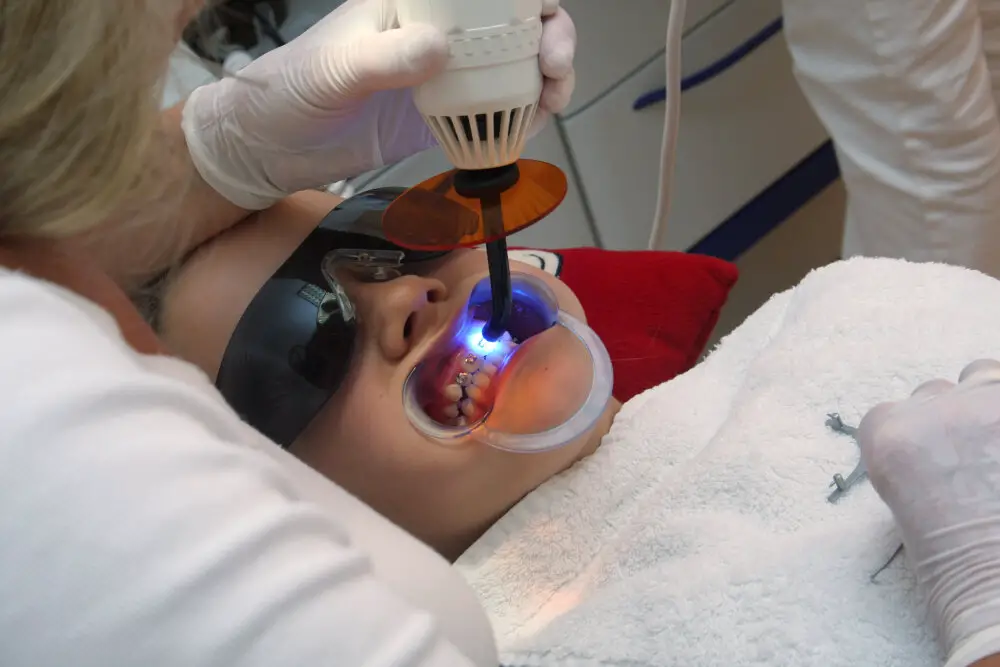
Sleep apnea is a common disorder that causes one’s breathing to repeatedly stop and start while sleeping. This condition can lead to various health issues, including cardiovascular problems and excessive daytime sleepiness. One of the main causes of sleep apnea is obesity, which leads to the accumulation of fat around the neck, causing the airway to narrow. Additionally, alcohol consumption, smoking, and the use of sedatives can exacerbate this condition. People with sleep apnea may experience symptoms such as snoring, gasping for air during sleep, and morning headaches. Treatment options include weight loss, use of a continuous positive airway pressure (CPAP) machine, and surgery in severe cases. If left untreated, sleep apnea can lead to severe health complications. One such complication is hypertension, which can increase the risk of heart disease and stroke. Additionally, sleep apnea may cause excessive daytime sleepiness, leading to poor performance at work or school and an increased risk of accidents. Therefore, it is essential to seek medical attention if you suspect that you have sleep apnea. Your doctor may recommend lifestyle changes, such as losing weight and avoiding alcohol and sedatives, to alleviate your symptoms. For severe cases, surgery may be necessary to widen the airway and improve breathing during sleep.
Sleep apnea is a common sleep disorder that affects millions of people worldwide. It is characterized by brief interruptions in breathing during sleep, which can occur multiple times throughout the night. These interruptions, or apneas, can last anywhere from a few seconds to a minute and can result in a decrease in oxygen levels in the body. This can lead to a range of health problems, including fatigue, headaches, and high blood pressure. Sleep apnea can be caused by a variety of factors, including obesity, smoking, and alcohol consumption, and can be treated with lifestyle changes, such as weight loss and quitting smoking, as well as medical interventions, such as continuous positive airway pressure (CPAP) therapy.
Sleep apnea is a condition that causes a person to stop breathing for short periods during sleep. This can lead to a decrease in oxygen levels in the body, which can cause a buildup of carbon dioxide. When this happens, the blood vessels in the body dilate, causing an increase in blood flow. This increased blood flow can put pressure on the nerves in the teeth, leading to pain and discomfort. This is particularly true for the bottom teeth, which are closest to the airway and more susceptible to the effects of sleep apnea. In addition, the grinding and clenching of teeth that often accompanies sleep apnea can also contribute to tooth pain and sensitivity. If left untreated, sleep apnea can not only cause dental issues but also lead to a host of other health problems, including high blood pressure, stroke, and heart disease.
Sleep apnea is a common sleep disorder that can cause a range of symptoms, including morning headaches, difficulty concentrating, and daytime fatigue. One of the most noticeable signs of sleep apnea is snoring, which can be loud and disruptive. Other symptoms of sleep apnea may include gasping or choking during sleep, restless sleep, and frequent awakenings throughout the night. In addition to these symptoms, people with sleep apnea may also experience dry mouth, sore throat, and a feeling of tightness in the chest upon waking. If you suspect that you may be experiencing sleep apnea, it is important to speak with your healthcare provider in order to receive an accurate diagnosis and appropriate treatment.
Sleep apnea can lead to a wide array of dental problems, including bottom teeth pain. Fortunately, there are several remedies that can help alleviate the discomfort caused by sleep apnea-induced bottom teeth pain. One of the most effective remedies is the use of a continuous positive airway pressure (CPAP) machine, which helps keep the airway open during sleep and prevents the onset of sleep apnea. Additionally, practicing good oral hygiene, such as brushing and flossing regularly, can help reduce the chances of developing dental issues related to sleep apnea. Other remedies include the use of oral appliances, such as mandibular advancement devices, which help reposition the jaw and prevent airway obstruction. In severe cases, surgery may be required to correct underlying structural issues that contribute to sleep apnea and bottom teeth pain.
Bottom teeth pain can be a result of several causes, including teeth grinding, gum disease, tooth decay, and misaligned teeth. Teeth grinding can lead to pain in the jaw and teeth, which can worsen over time. Gum disease and tooth decay can cause inflammation and sensitivity, leading to pain. Misaligned teeth can also cause discomfort and pain, as they put pressure on neighboring teeth. Remedies for bottom teeth pain include practicing good oral hygiene, using a mouthguard to prevent teeth grinding, taking pain medication, and seeking professional dental treatment. If left untreated, bottom teeth pain can worsen and lead to more severe dental problems, such as tooth loss. Therefore, it is essential to address the issue as soon as possible to prevent further complications.
If the pain in your bottom teeth persists, it is highly recommended to seek professional dental advice. Although there are various reasons that may cause tooth pain, it is essential to determine the exact cause to prevent further damage. Ignoring persistent tooth pain can result in severe oral health issues, including cavities, gum disease, and tooth loss. While there are temporary remedies that can alleviate the pain, it is crucial to understand that they only provide short-term relief. A dental professional can conduct a thorough examination, identify the root cause of the pain, and provide an appropriate treatment plan. Therefore, it is vital to prioritize your oral health and seek immediate dental attention if you experience any discomfort or pain in your teeth.
Conclusion
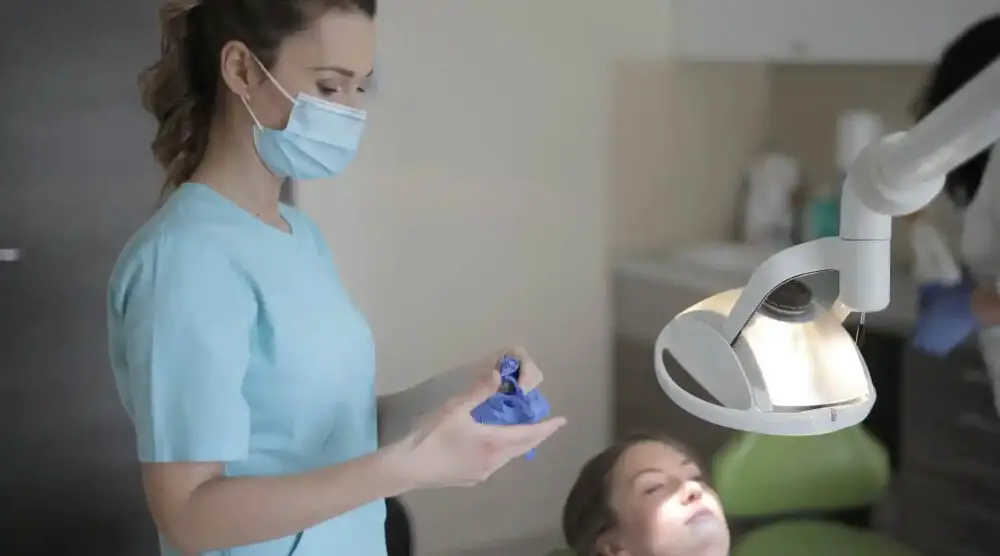
In conclusion, experiencing pain in the bottom teeth upon waking up can be due to various causes, such as teeth grinding, gum disease, tooth decay, or even poor sleeping habits. It is essential to understand the underlying reasons to determine the appropriate remedies. Regular dental check-ups, maintaining good oral hygiene, and wearing a mouthguard can help alleviate the pain and prevent further damage to the teeth. Additionally, adopting healthy sleeping habits, such as sleeping on your back, can also contribute to reducing the discomfort. Overall, taking care of your oral health and seeking professional advice is crucial in ensuring that you wake up with a pain-free smile.
